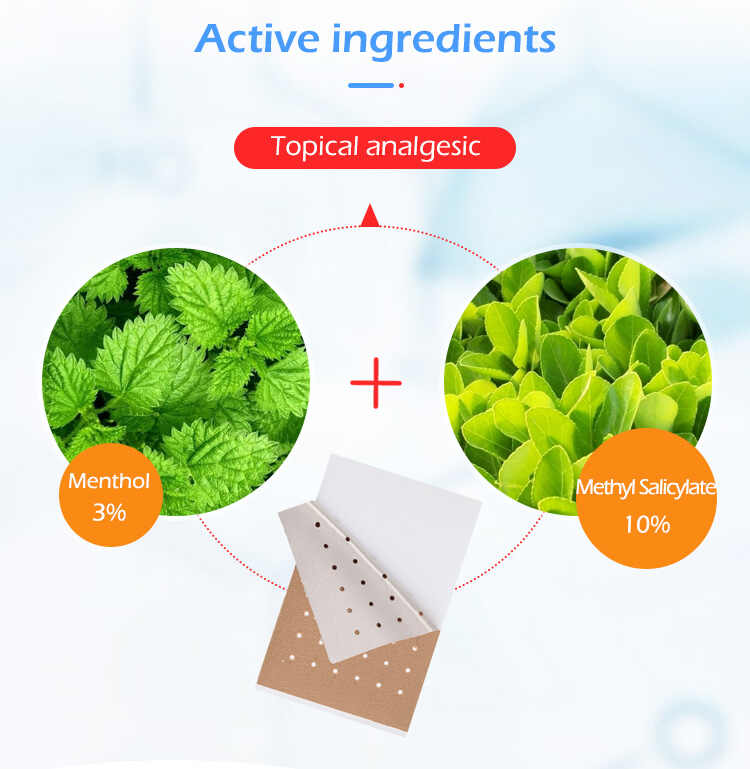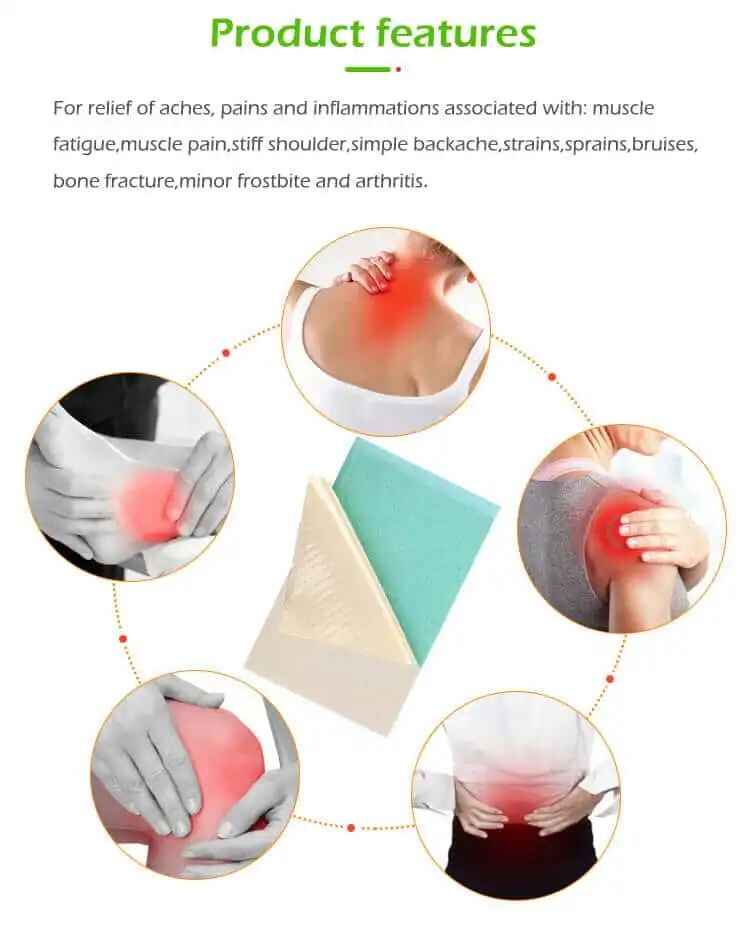What Certifications Should a Chronic Pain Patches OEM Have? A Complete Guide for Private Label Brands
In the growing market for Custom Chronic Pain Patches, ensuring quality, safety, and compliance is non-negotiable. Whether you’re a startup brand or a global distributor, the foundation of your success lies in choosing a Chronic Pain Patches OEM or Chronic Pain Patches Manufacturer that holds the right certifications.
Certifications are not just paperwork—they represent a manufacturer’s ability to produce safe, effective, and legally compliant products. This article will guide you through the essential certifications a Chronic Pain Patches Supplier must have and explain why they matter for your Private Label Chronic Pain Patches business.
1. Why Certifications Matter in Chronic Pain Patch Manufacturing
Whether you’re launching a single product or an entire range of Custom Chronic Pain Patches, certifications assure:
Compliance with local and international regulations
Confidence in product safety and efficacy
A smoother path to market approvals
Long-term brand reputation and consumer trust
Your Chronic Pain Patches OEM serves as the backbone of your product quality. Without proper certifications, your products could face import rejections, legal action, or customer backlash.
2. Core Certifications Every Chronic Pain Patches OEM Should Have
A. ISO 13485: Quality Management System for Medical Devices
Why it matters: This is the gold standard for medical device manufacturing. If your Custom Chronic Pain Patches are classified as medical devices, this certification is essential.
Benefits:
Demonstrates adherence to international quality control protocols
Required for CE marking (EU) and recognized globally
Indicates strong documentation, traceability, and risk management systems
How to verify: Ask your Chronic Pain Patches Manufacturer for a valid ISO 13485 certificate issued by a reputable body.
B. GMP (Good Manufacturing Practices)
Why it matters: For patches classified as pharmaceutical or drug products, GMP certification ensures the manufacturer maintains high standards for hygiene, production, and testing.
Regulatory bodies issuing GMP:
FDA (USA)
EMA (EU)
WHO (global GMP guidance)
NMPA (China)
Benefits:
Required for OTC drug registration
Ensures consistent product safety and efficacy
Minimizes risk of contamination or cross-reaction
Your Chronic Pain Patches Supplier should be transparent about GMP compliance and regularly audited by health authorities.
C. CE Marking (for Europe)
Why it matters: If you plan to sell in the EU, CE certification is legally required for medical devices. This mark shows compliance with EU MDR (Medical Device Regulation).
Applies to:
Low to medium-risk Chronic Pain Patches (e.g., Class I or II medical devices)
Benefits:
Enables legal sale in the EU
Often accepted or respected in non-EU markets
Validates product safety and performance
Make sure your Chronic Pain Patches OEM can either provide CE-marked products or assist you in achieving CE compliance.
D. FDA Registration (for U.S. Market)
Why it matters: If you want to sell in the United States, your manufacturer must be registered with the FDA, and the facility must be compliant with FDA guidelines.
Requirements depend on classification:
For drug patches: Must follow the OTC Monograph or get NDA approval
For medical devices: 510(k) submission may be needed (unless exempt)
A qualified Chronic Pain Patches Manufacturer will be familiar with FDA standards and help you meet them efficiently.
E. ISO 22716: Cosmetics GMP (if applicable)
Some Private Label Chronic Pain Patches are marketed more as wellness or cosmetic products. In these cases, ISO 22716 certification demonstrates compliance with Good Manufacturing Practices specific to cosmetics.
Benefits:
Ensures production quality and safety
Facilitates easier approval in regions like the EU, Middle East, and Asia
Supports natural or botanical pain patch claims
Ask your Chronic Pain Patches OEM if they follow ISO 22716, especially if your patch includes herbal ingredients.
F. Halal, Vegan, and Organic Certifications (Optional but Beneficial)
If you’re targeting niche markets or ethical consumers, additional certifications help differentiate your Custom Chronic Pain Patches:
Halal Certification: Important in Muslim-majority countries (e.g., UAE, Malaysia)
Vegan Certification: Appeals to cruelty-free and plant-based product consumers
USDA Organic / ECOCERT: Useful for herbal or natural patch branding
Your Chronic Pain Patches Supplier should offer these options if customization is a key part of your private label strategy.
3. How Certifications Protect Your Private Label Chronic Pain Patches Brand
A. Regulatory Access
Certified manufacturers ease entry into highly regulated markets. Without GMP, CE, or ISO 13485, your Private Label Chronic Pain Patches could be denied registration or import approval.
B. Consumer Trust
Displaying certifications on your product or packaging boosts consumer confidence. This is particularly important in competitive online marketplaces.
C. Risk Reduction
Certified processes lower the risk of product failure, recalls, or lawsuits. They also protect your brand legally and financially.
4. Choosing a Certified Chronic Pain Patches OEM: What to Ask
When selecting a Chronic Pain Patches Manufacturer, consider asking:
Can you provide updated ISO 13485 and GMP certificates?
Are you FDA registered and inspected?
Do your patches have CE or other regional certifications?
What testing is performed (e.g., stability, irritation, performance)?
Do you support documentation for international registrations?
Can you offer vegan, halal, or herbal-specific certifications?
The right Chronic Pain Patches Supplier will provide this documentation upfront, clearly and confidently.
5. The Role of a Compliance-Ready Chronic Pain Patches OEM
A high-quality Chronic Pain Patches OEM doesn’t just produce—they partner with your brand to ensure success across the supply chain.
Top OEMs will offer:
Full regulatory support
Customized documentation
Compliance with multiple country standards
Transparent and audited production processes
Scalable solutions from small runs to mass production
This allows you to launch Custom Chronic Pain Patches faster, safer, and with greater confidence.
Conclusion: Certifications Are the Backbone of a Trusted OEM Partnership
If you’re entering or expanding in the Private Label Chronic Pain Patches market, certifications are not optional—they’re essential. They unlock access to global markets, protect your customers, and secure your brand's reputation.
A reputable Chronic Pain Patches Manufacturer or OEM should always be able to show compliance with ISO 13485, GMP, CE, FDA, and other relevant standards. If your potential partner lacks these, consider it a red flag.
As regulations tighten and competition increases, certification-backed quality will set your brand apart.
Related Questions and Short Answers
Q1: Is ISO 13485 mandatory for selling Chronic Pain Patches in Europe?
A: Yes, especially if your patches are classified as medical devices. ISO 13485 supports CE marking under EU MDR.
Q2: Does my Chronic Pain Patches OEM need to be FDA-registered to sell in the U.S.?
A: Yes, if the patches are drugs or medical devices. The facility must be FDA registered and compliant.
Q3: Can I market pain patches as “natural” without organic certification?
A: You can, but using certifications like USDA Organic or ECOCERT builds consumer trust and meets stricter label laws.
Q4: Are Halal or Vegan certifications required?
A: Not required, but highly recommended if targeting specific ethical or religious markets.
Q5: How do I verify if a Chronic Pain Patches Manufacturer is truly certified?
A: Request copies of certifications, verify expiration dates, and check if they’re issued by recognized bodies.
Q6: Can a Chronic Pain Patches Supplier help me get CE or FDA approval?
A: Yes, a competent OEM will provide technical documentation, testing data, and guidance for regional registration.







